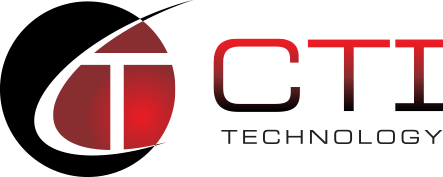Law Firm Security and VPN Technology: Enhancing Client Data Protection
In today’s digital world, law firm security is of the utmost importance, especially with the increasing number of cyber threats targeting sensitive information. One effective way to protect confidential data and enhance security within a law firm is by implementing Virtual Private Network (VPN) technology. VPNs add an extra layer of protection against hackers and scammers, prevent web tracking, and limit access to the firm’s network.
Law firms typically handle large amounts of sensitive data, including trade secrets and crucial information related to legal proceedings. With such valuable data, it’s no surprise that cybercriminals often target them. Therefore, law firms must prioritize their IT security strategy, and VPN technologies can play a pivotal role in safeguarding their digital assets. By deploying a VPN, law firms can ensure secure access to their networks and maintain client trust by keeping their data safe from potential breaches.
Key Takeaways
- VPNs enhance law firm security by adding an extra layer of protection against cyber threats.
- Ensuring secure access to digital assets is crucial for maintaining client trust.
- VPN technologies play a vital role in a comprehensive IT security strategy for law firms
CTI Technology: Chicago Law Firm Tech Security
As a law firm, you understand the importance of securing your clients’ information. Cyber Threat Intelligence (CTI) technology can help you improve law firm security. This technology collects, analyzes, and shares information about digital threats and vulnerabilities to protect your network from attacks.
One crucial aspect of CTI technology is proactive threat hunting. This means identifying cyber threats and attacker methodologies before they exploit your systems. Using CTI tools, you can gather data from various sources, like social media, dark web forums, and blogs, where hackers share tactics and potential targets.
Benefits of CTI Technology for Law Firms:
- Reduced risk of data breaches: By providing real-time alerts and threat intelligence, CTI helps you stay one step ahead of cybercriminals, addressing vulnerabilities before they can be exploited.
- Enhanced network visibility: CTI tools enable you to monitor your network and identify any anomalies that could signal a breach, enabling you to take action quickly.
- Up-to-date threat information: With CTI, you receive regular updates on potential threats and attacker techniques, helping you maintain a strong security posture.
- Improved incident response: Armed with CTI insights, your team can tackle security incidents effectively and efficiently, minimizing potential damages and downtime.
When considering using a VPN for your law firm, it’s essential to understand the role CTI technology plays in security. Incorporating CTI with VPN technology offers robust protection, ensuring your clients’ confidential information remains safe from cyber threats.
Remember, combining proactive and reactive security measures, like CTI and VPN technology, is vital for maintaining robust security in your law firm. Don’t wait until a breach occurs; invest in the best tools and solutions to safeguard your clients’ data and your firm’s reputation.
Leading Expert
As a leading expert in law firm security, it’s crucial to stay up-to-date on the latest advancements in VPN technology. VPNs, or Virtual Private Networks, are essential for safeguarding sensitive client information and maintaining confidentiality in your practice. Encrypting data and masking your internet connection can protect your firm from cyber threats and prying eyes.
When implementing a VPN for your law firm, one key aspect is selecting the right service provider. Numerous VPN providers are available, but not all of them are suitable for the unique needs of a legal practice. Look for a provider with strong encryption protocols, a solid reputation for reliability, and a record of compliance with privacy regulations.
Additionally, it’s essential to recognize the potential risks associated with VPNs. Poorly managed or unsecured VPNs can create vulnerabilities in your network. To mitigate these risks, routinely audit your VPN infrastructure and ensure access is restricted to only authorized personnel. Implementing multi-factor authentication (MFA) can further enhance security by requiring additional forms of identification for access.
Finally, remember that a VPN is just one aspect of a comprehensive law firm security strategy. While a VPN can provide substantial privacy and security benefits, it should be used with other protective measures, such as firewalls, antivirus software, and strong password policies. Taking a proactive approach to cybersecurity ensures your clients’ sensitive information remains safe and secure.
Information Technology For Law Firms
Your law firm’s security is paramount in today’s highly connected world. Utilizing the right technology can significantly enhance your firm’s overall protection, and Virtual Private Networks (VPN) play a critical role in this process.
Chicagoland Region
When operating a law firm in the Chicagoland region, investing in reliable IT infrastructure is essential. Specifically, focus on these critical components:
- VPN Technology: Implement a robust VPN solution to protect sensitive client information and internal communications. This will create a secure, encrypted tunnel between your devices and the internet.
- Firewalls and Antivirus Software: Deploy industry-leading firewalls and antivirus software to safeguard your law firm’s data, systems, and networks from cyberattacks.
- Data Storage and Backup: Adopt a secure data storage solution with automated backups to ensure data redundancy and recovery during a disaster. Cloud storage providers are your go-to option here.
It is crucial to evaluate the above factors when building your law firm’s IT infrastructure and selecting technologies. By doing so, you’ll not only protect your business but also reinforce client trust and confidence in your legal services.
IT Security And VPN Technologies
Largest Law Firms
As a large law firm, you handle sensitive and confidential information daily. A robust IT security plan protects your clients’ data and maintains their trust. One key element in this security plan is using VPN (Virtual Private Network) technology.
A VPN creates a secure, encrypted connection between your firm’s devices and the internet, ensuring the confidentiality, integrity, and availability of the data transmitted. By deploying VPNs, you can:
- Safeguard sensitive information from unauthorized access
- Enable secure remote access for your staff members
- Comply with industry regulations and data privacy laws
In addition to VPNs, consider implementing other security measures like:
- Regular security audits
- Secure file-sharing solutions
- Multi-factor authentication (MFA)
- Employee cybersecurity training
Just Starting Out
Building a solid IT security foundation is crucial for your budding law firm. Leveraging VPN technologies, even as a small business, is an intelligent investment in ensuring the safety and security of your client’s information.
When setting up your VPN, prioritize these factors:
- Encryption: Select a VPN service with robust encryption algorithms to secure data transmission.
- Reliability: Choose a VPN with a record of minimal downtime and consistent speeds to avoid interruptions in your work.
- Ease of use: Opt for a user-friendly VPN your team can easily manage and maintain.
Maintaining a core focus on security is essential for building trust with your clients as a smaller firm. Pair your VPN use with other security measures such as:
- Installing anti-malware software
- Restricting access to sensitive information
- Regularly updating and patching software
- Creating strong, unique passwords for all accounts
By adopting these IT security practices, you can ensure a reliable and secure environment for your firm’s growth.
Frequently Asked Questions
How can law firms ensure data security with VPNs?
A VPN (Virtual Private Network) encrypts your internet connection, ensuring that the data you transmit and receive remains secure. As a law firm, you should choose a reputable VPN provider with strong encryption and a no-logs policy. Additionally, ensure devices used by your employees have updated security software and conduct regular security audits.
What are the best VPN practices for law offices?
- Choose a reliable VPN with strong encryption and a no-logs policy.
- Train your employees on the importance of using a VPN and how to use it securely.
- Keep software and operating systems up-to-date.
- Enable multi-factor authentication wherever possible.
- Establish clear guidelines on remote work and device usage.
How does VPN technology mitigate cyber threats in a law firm?
By encrypting your internet connection, a VPN protects your law firm from various cyber threats, such as hackers intercepting sensitive data, monitoring your online activities, or conducting Man-in-the-Middle attacks. Using a VPN also conceals your IP address, adding an extra layer of privacy and security.
What are the critical cybersecurity features for lawyers to look for in a VPN?
Some crucial features to consider when choosing a VPN for your law firm include the following:
- Strong encryption to protect your data.
- A no-logs policy to ensure the VPN provider does not store your data.
- A kill switch to disconnect the internet connection if the VPN connection drops.
- Multi-device compatibility to support all devices used in your law firm.
- A wide range of secure servers for better performance and security.
How can law firms maintain client confidentiality using VPNs?
Utilizing a VPN ensures your client’s confidential information remains secure when transmitted online. This protection is established through complex encryption protocols, safeguarding data from potential breaches. Pairing a VPN with other security measures, such as secure email platforms and encrypted file storage services, further enhances client confidentiality.
What are the advantages of adopting VPN technology for remote access in law firms?
By adopting VPN technology for remote access, you can:
- Secure sensitive data transmission from remote locations.
- Safeguard your client’s confidential information.
- Access the law firm’s network and resources remotely in a secure manner.
- Enhance privacy by concealing your IP address and browsing activities.
- Improve overall cybersecurity posture and minimize cyber risks.
Why Is CTI Technology The Best Choice For IT Services In The Chicagoland Region?






















